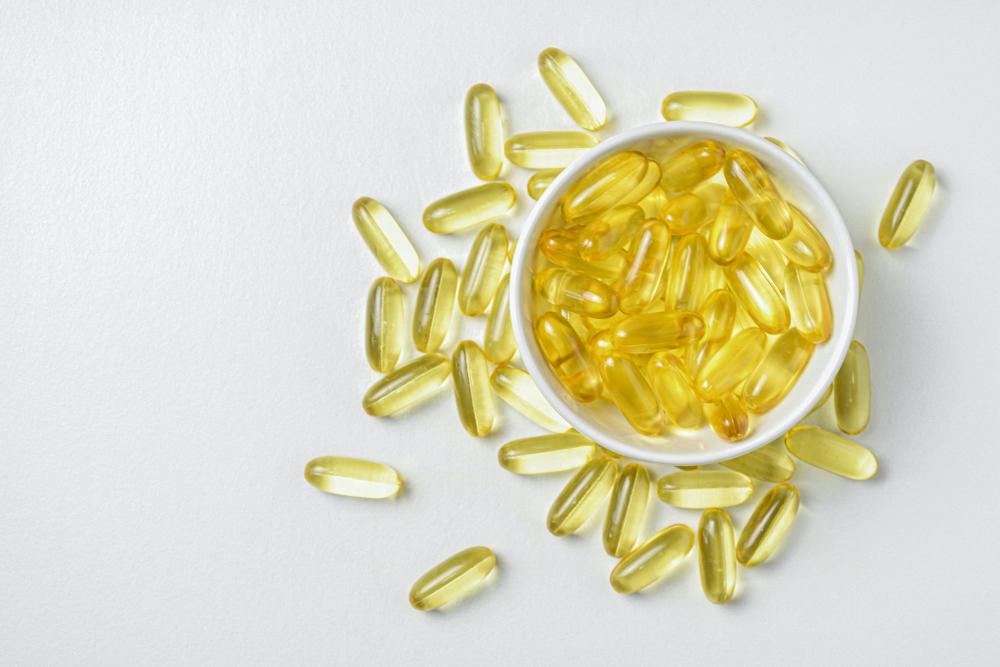Transform your health with food supplements.

As the focus on health and wellness grows more prominent in our day to day lives taking a food supplement can be a great way to kick start your wellbeing journey. To define food supplements, they ‘are foods presented in small unit dose form and containing concentrated sources of nutrients and other food components.” If you are eating a healthy well-balanced diet, it’s likely you may not need to take a food supplement, but alot of us aren’t getting the required nutrients needed and it can be a good way to cover all bases.
Food supplements are important as they can correct and prevent nutritional deficiencies. For example, Vitamin D is required in infants who are not formula fed from birth and children up until the age of 4 as it plays an important role in their growth and development. Another example is that as we age are bodies are not as effective at absorbing nutrients from the food we eat, so we are recommended vitamin D and B12, due to the body’s inability to absorb vitamin D from the ageing process of our skin. Vitamin D plays a crucial role in the absorption of calcium keeping our bones strong and preventing osteoporosis. B12 is also effected by our bodies ability to absorb it as we age. It plays an important role in cognitive function, regulating the nervous system, blood health and preventing anemia.
Many of us can benefit from incorporating supplements into our life in some way to maximise our health and keep our bodies in good health. If you are starting to focus on your health and wellbeing, we have put together a list of daily vitamin and minerals.
Vitamin C
It plays an important role in the body’s ability to grow, heal, and maintain tissue. It supports the immune system by increasing the production of white blood cells and their function and aides the absorption of other vitamins and minerals.
Vitamin B12 and Folic Acid
Vitamin B12 is one of the most common deficiencies in the world, It’s a water soluble vitamin that we need small amounts of for our body to function optimally. Vitamin B12 can improve and help you maintain energy levels. It’s needed to convert the carbohydrates we eat into glucose for our body to use as energy. B12 when taken with folate (folic acid) can help regulate our nervous systems and reduce mood disorders such as anxiety, stress and depression. B12 and folate (folic acid) are also both important during pregnancy as B12 reactivates the folate (folic acid). Folic acid is crucial for the prevention of neural tube defects during the first few months of pregnancy.
Vitamin D
A fat-soluble nutrient often referred to as the sunshine vitamin because our main source of it comes from the sun. It is stored in the liver and fatty tissues and plays a vital role in regulating the absorption of calcium preventing weak and brittle bones which can lead to osteoporosis. Vitamin D is important in supporting the immune system and keeping it balanced and preventing prolonged periods of inflammation. Studies have shown it to also help fight heart disease, manage blood sugar levels, help with hormone regulation, keep skin healthy and aid thyroid function.
Iron
An essential mineral found in every cell of our body. It is used in the production of red blood cells. Iron is also the part of the red blood cell that carries oxygen from the lungs to your brain, tissue and muscles, and enables the oxygen to move freely between cells. This is why when we are deficient in iron we feel fatigue as our organs struggle to receive the oxygen required to function optimally.
Vitamin E
A powerful antioxidant in preventing the build up of free radicals which break down healthy cells in our bodies, leading to all different types of diseases. Vitamin E balances the hormones in our bodies naturally which keeps our body functioning optimally. Supplementing with vitamin E a few days before your period can help reduce cramping and keep your cycle regular. It also can help during menopause by alleviating the symptoms and reducing stress in the body.
Multivitamin
Excellent for helping you avoid and correct any nutritional deficiencies you may have as they contain a wide variety of vitamins and minerals. This may not prevent you from catching a cold, but it will definitely help in reducing the severity and length of it by giving your body that extra boost in fighting off the illness. Remember multi vitamins and multi nutrient supplement aren't alway one size fits all. There are specific multi vitamin/nutrient supplements for specific stages in life such as childhood, pre/post natal and old age. Taking the correct one for the specific stage in your life is important, as some might not have the correct vitamin nutrient balance needed.
Disclaimer
Remember to always speak to your doctor before introducing a new food supplement to get the correct type and dosage for your needs. Certain food supplements can be dangerous when taken in large quantities and can affect different medications you might already be taking or illnesses you may have. Be careful about giving supplements to babies and children, and only give what has been recommended by their doctor. Pregnant and nursing mothers should make sure they stick to pre- and post-natal supplements. Food supplements should not be used in replace of a healthy diet.
References
Nutrients needed - https://pubmed.ncbi.nlm.nih.gov/33502375/
Vitamin D - https://www.mdpi.com/1422-0067/24/5/4546
B12 - https://pubmed.ncbi.nlm.nih.gov/23592803/
Vitamin C - https://pubmed.ncbi.nlm.nih.gov/29534432/
B12 - https://www.ncbi.nlm.nih.gov/pmc/articles/PMC3257642/
Heart health - https://www.theguardian.com/science/2023/jun/28/vitamin-d-supplements-may-cut-risk-of-heart-attacks-trial-suggests
Blood sugar levels - https://diabetes.org/healthy-living/recipes-nutrition/vitamins-diabetes/low-vitamin-d-insulin-resistance
Hormone regulation - https://www.pharmacytimes.com/view/vitamin-d-is-the-new-hormone
Skin health - https://www.ncbi.nlm.nih.gov/pmc/articles/PMC8396468/
Thyroid function - https://www.btf-thyroid.org/vitamin-d-and-thyroid-disease
Vitamin E - https://www.medicalnewstoday.com/articles/318168#Ten-potential-benefits
Hormone balance - https://www.ncbi.nlm.nih.gov/pmc/articles/PMC9824658/
Multi vitamin - https://www.ncbi.nlm.nih.gov/pmc/articles/PMC5579642/











